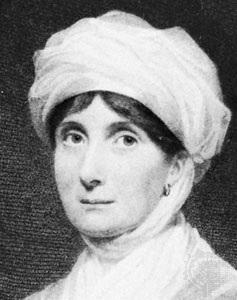A Quote by Anthony de Mello
The master never seemed to have his fill of gazing at his firstborn child. "What do you want him to be when he grows up?" someone asked. "Outrageously happy," said the master.
Related Quotes
Some would define a servant like this: 'A servant is one who finds out what his master wants him to do, and then he does it.' The human concept of a servant is that a servant goes to the master and says, 'Master, what do you want me to do?' The master tells him, and the servant goes off BY HIMSELF and does it. That is not the biblical concept of a servant of God. Being a servant of God is different from being a servant of a human master. A servant of a human master works FOR his master. God, however, works THROUGH His servants.
The real master is only a presence. He has no intentions of being a master. His presence is his teaching. His love is his message. Every gesture of his hand is pointing to the moon. And this whole thing is not being done, it is a happening. The master is not a doer. He has learned the greatest secret of life: let-go. The master has drowned his ego and the idea of separation from existence itself.
A zealous disciple expressed a desire to teach others the Truth and asked the Master what he thought about this. The Master said, "Wait." Each year the disciple would return with the same request and each time the Master would give him the same reply: "Wait." One day he said to the Master, "When will I be ready to teach?" Said the Master, "When your excessive eagerness to teach has left you.
His master’s pain was his pain. And it hurt him more for his master to be sick than for him to be sick himself. When the house started burning down, that type of Negro would fight harder to put the master’s house out than the master himself would. But then you had another Negro out in the field. The house Negro was in the minority. The masses—the field Negroes were the masses. They were in the majority. When the master got sick, they prayed that he’d die. If his house caught on fire, they'd pray for a wind to come along and fan the breeze.
Brotherly love is not a tangible commodity. We cannot touch it or weigh it, smell it of taste it. Yet it is a reality; it can be creative, it can be fostered, it can be made a dynamic power. The Master who has it in his Lodge and his brethren will find that Lodge and brethren give it back to him. The Master too worried over the cares of his office to express friendliness need never wonder why his Lodge seems too cold to his effort.
The Master persistently warned against the attempt to encompass Reality in a concept or a name. A scholar in mysticism once asked, "When you speak of BEING, sir, is it eternal, transcendent being you speak of, or transient, contingent being?" The Master closed his eyes in thought. Then he opened them, put on his most disarming expression, and said, "Yes!"
Often nothing keeps the pupil on the move but his faith in his teacher, whose mastery is now beginning to dawn on him .... How far the pupil will go is not the concern of the teacher and master. Hardly has he shown him the right way when he must let him go on alone. There is only one thing more he can do to help him endure his loneliness: he turns him away from himself, from the Master, by exhorting him to go further than he himself has done, and to "climb on the shoulders of his teacher."
God-realization is the most difficult state to reach. Let no one fool himself, nor think that someone else can "give" it to him. Whenever I fell into a state of mental stagnation, my Master could do nothing for me. But I never gave up trying to keep in tune with him by cheerfully performing whatever he asked me to do. "I have come to him for God-realization," I reasoned, "and I must listen to his advice."


































